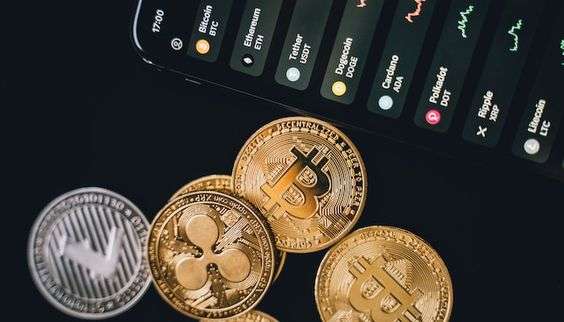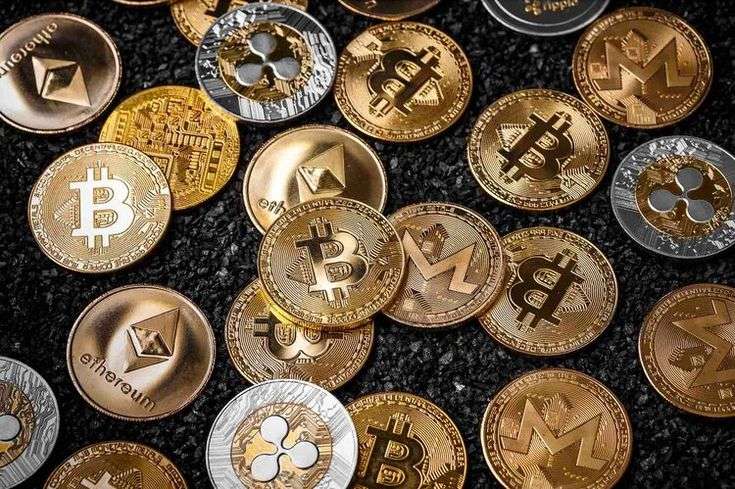
Blockchain platform has the potential to revolutionize the way we conduct business, manage data, and interact with each other. Blockchain technology allows for secure, transparent, and tamper-proof transactions. A blockchain is a shared, immutable ledger that facilitates the process of recording transactions and tracking assets in a business network. An asset can be tangible (a house, car, cash, land) or intangible (intellectual property, patents, copyrights, branding). Virtually anything of value can be tracked and traded on a blockchain network, reducing risk and cutting costs for all involved .
Benefits of Blockchain Technology:
- Efficiency: By simplifying transactions with blockchain, dealings can be achieved quickly and more efficiently. Transactions once registered on the blockchain can’t be modified or removed. On the blockchain, all transactions are timely and date-wise noted, so there’s a permanent chronology. Therefore, blockchain can be employed to track information over the short and long term, allowing a secure, trustworthy version of knowledge.
- Transparency: Blockchain produces a track that establishes the origin of an investment at every step of its records. It is achievable to transfer data regarding origin directly with clients. Transparency is one of the major difficulties in the IT world. To enhance transparency, associations have attempted to execute more rules and protocols. The main goal of the blockchain is to make the business model transparent which includes transactions, wallets, etc. So that no single individual can make the changes without knowing other participants in the business model.
- Security: By building a document that can’t be changed and is encrypted end to end, blockchain allows for preventing copying and unauthorized movement. Privacy problems can likewise be managed on blockchain by individual data and individual authorizations to maintain access. The security is so tight that it is very difficult to hack the ledger and steal or manipulate the information because of using a consensus algorithm. Any trades that are ever registered require to be decided upon according to the agreement approach. Furthermore, the individual transaction is encrypted and has a verified connection with the previous transactions with help of hashing algorithms.
- Network distribution: When users load data into the approach, users cannot modify it and it’s hard to eliminate. Even small differences can be traceable, tracked, and registered then distributed on the blockchain ledger for all to view. This particular supplies, at the identical moment, various advantages, by having this network distributed, in the foremost example, no one holds the network, permitting various users to consistently have numerous documents of the exact data. Moreover, this feature causes it immune and distributed to any kind of defeat as the point that a node dies accomplishes not suggest generalized failures in the P2P network .
Comprehensive Review of various Blockchain Platforms

Blockchain platforms are emerging platforms that are being used for generalized distributed value exchange, consisting of an expanding list of cryptographically signed, irrevocable transactional records shared by all participants in a network. Each record contains a time stamp and reference links to previous transactions. It is a decentralized state transition machine that manages the life cycle of digitalized assets and immutably records operations in a distributed ledger. A digitalized asset can be any object with explicit or implicit value (such as digital currencies, securities, precious metals, commodities, materials, identity, credentials, patient health records)
How easy to use the Blockchain Platform, Chainalysis KYT
Chainalysis KYT is a blockchain data platform that provides data, software, services, and research to government agencies, exchanges, financial institutions, and insurance and cybersecurity companies in over 70 countries.
Chainalysis KYT (Know Your Transaction) is a cryptocurrency compliance tool that combines industry-leading blockchain intelligence, an easy-to-use interface, and a real-time API. It helps organizations reduce manual workflows, stay compliant with crypto regulations, and safely interact with emerging technologies such as decentralized finance (DeFi).
Chainalysis KYT performs continuous crypto transaction monitoring for all cryptocurrency assets.
Chainalysis KYT offers several products, including:
- Reactor: A tool that connects cryptocurrency transactions to real-world entities.
- KYT: A tool for transaction monitoring for AML/CFT compliance.
- Address Screening: A tool that prevents high-risk users from connecting to your platform.
- Playbook: A tool that provides on-chain user insights for growth teams.
- Storyline: A tool that enables users to understand, investigate, and communicate complex smart contract, multi-asset, and cross-chain transactions.
How secure is the Platform
Chainalysis KYT detects patterns of high-risk activity and prevents cryptocurrency transactions with addresses identified on OFAC’s sanction list, freezes deposits from hacks or ransomware, screens ETH accounts, and more. You can configure real-time alerts based on your organization’s AML compliance policies.
Chainalysis KYT enables companies working with or trading in cryptocurrency to comply with local and global regulations and to reduce manual work processes. KYT detects patterns of risky activities, including Darknet Markets, scams, sanctioned addresses, and deviating transactions.
Chainalysis KYT is designed to work in real-time, flagging potential money laundering or other illegal transactions on the blockchain. It also enables further investigation of such transactions with the help of Chainalysis Reactor.
Introduction to Ripple
Ripple is a revolutionary and business-friendly cryptocurrency known for its digital payment network and protocol, and, has its own cryptocurrency that acts as a bridge currency to other currencies. Rather than use blockchain mining, it uses a consensus mechanism to confirm transactions through a group of servers. Based on demand as an anti-spam measure, Ripple allows setting the transaction fee dynamically.
As RippleNet is growing since 2015, the leading transaction bankers are ensuring operational consistency and legal clarity for every payment transfers. Ripple offers a payment layer that corporations and banks can use for cross-border payments. Its functional standards and payment rules ensure a consistent payment experience, and it allows participants to transact with anyone on Ripple’s global real-time payment network through a single agreement.
Ripple an open-source protocol designed to allow transactions in a fast and cheap manner. Ripple is not just a platform but a currency. This platform has its own currency known as XRP but also allows people to create their own currency via RippleNet.
RippleNet is nothing but a network of institutional payment-providers like banks and money services firms that use solutions developed by Ripple to offer a frictionless experience to send money globally.
Although Bitcoin is one of the known cryptocurrencies, Ripple is another one to take its place in the market. Unlike traditional methods of transactions, this platform aims at making the transaction process easier and quicker, especially for the cross-border payments, thus creating a better ecosystem of growth and development.

Understanding XRP
For facilitating transfers of money between different currencies, XRP is the cryptocurrency used on the Ripple network.
For converting between other currencies, existing settlement systems use US dollars as a common currency, but this accounts for exchange fees and takes time, and this is the reason why bank often take up to three days to process between accounts in different countries.
But with XRP, rather than USD conversion, the value of the transfer is converted into XRP which eliminates exchange fees, and the processing of payments is reduced to seconds.
Features and It’s Working
To make international payment transfers easier and more convenient, Ripple can be seen as the best solution. But before understanding how this platform works, it is essential to learn what are the significant challenges associated with cross-border payments.
- The international payment transfer is expensive as there is the involvement of third parties.
- The traditional method of transfer is really slow as it takes around days and even weeks.
Distinguishing Ripple and Bitcoin
Although Bitcoin and Ripple have some similarities, there are striking differences between the two.
- Bitcoin is a blockchain technology while Ripple doesn’t use blockchain but uses a distributed consensus ledger and crypto tokens called XRP.
- Bitcoin can handle a maximum of 3-4 transactions per second on-chain while Ripple has demonstrated over 1500 transactions per second in its enclaves.
- Bitcoin is a digital currency intended as a means of payment for goods and services while on the other hand Ripple is designed for banks and payment networks, is a payment settling, currency exchange and remittance system.





